Winners
Manchester City’s home form
If Kevin de Bruyne is normalising brilliance,
so too are Manchester City in their home stadium. We’ve got so used to them being exceptional that it barely raises an eyebrow when they score five.
City have now scored 49 goals in their last 13 home league games at an average of just under four per match. In only two of those 13 since the 1-1 draw with Everton in August have they failed to score three or more times.
You don’t even get five minutes before the slow suffocation commences.
City’s home dominance is best expressed by their results against the top eight teams in the division, and it is an astonishing list:
4-1 vs Tottenham
5-0 vs Liverpool
3-1 vs Arsenal
5-1 vs Leicester
3-0 vs Burnley
In those five matches, City had a total of 76 shots and faced just 28. They averaged 65% possession and completed more than 600 passes per game.
It is total supremacy against their apparent peers. In reality, they have no peers. They exist on a higher plane.
Chelsea have the record for the most home goals scored in a Premier League season, with 68 in 2009/10. With five games still remaining, City have 50.
Tottenham’s home form
Four against Liverpool, five against Stoke, four against Everton, five against Southampton. If Tottenham have found their goalscoring touch at Wembley, their defence is putting up a fight to be regarded higher still.
Spurs have conceded more than once in just one of their last 13 home league games. It’s now 480 minutes and counting since they conceded a home goal in any competition.
“I’m going through the best time since I started coaching Tottenham,” Mauricio Pochettino told La Gazzetta dello Sport on Sunday.
“The results against Manchester United, Liverpool and Arsenal gave us confidence. Now we know we can face the big teams with a different spirit.”
That all of those games were played at home indicates the area in which Tottenham must improve if they are to be title challengers, but, again, we never expected them to be considered in such lofty company anyway.
Pochettino and his team have little reason for fear ahead of Turin on Tuesday. Is this team ready to come of age?
Carlos Carvalhal and Championship managers
The non-Pep Guardiola managerial performance of this Premier League season, from a man who was appointed with only three days of 2017 remaining.
When Carvalhal arrived in south Wales as a sacked Championship manager, Swansea were five points from safety and bottom of the Premier League.
Doubts were voiced about his suitability for the role. Since then, Swansea have taken the same number of points as Manchester City in the same number of games.
They have played Tottenham, Arsenal and Liverpool in those seven matches.
Until now, Carvalhal’s impact has been mainly motivational. There have been few tactical innovations or bold shifts in team selection, simply a manager instilling belief in the squad that they were good enough to escape despite few outside of Swansea believing that to be any more than fanciful optimism.
Against Burnley however, Carvalhal did change the course of the game.
Burnley’s resolute defence were heading for an 11th clean sheet of the season and plenty of home supporters saw a draw as a perfectly acceptable result.
Yet Carvalhal was courageous. He first took off Martin Olsson and replaced him with debutant Andre Ayew, and then brought on Tammy Abraham for Nathan Dyer and played with a front three.
Swansea had seven of their 12 shots after that second substitution on 74 minutes, and won the game thanks to Ki Sung-Yeung’s finish.
“When we arrived we were in the deep ocean. It was very deep and dark,” Carvalhal said after the game, the latest in a series of maritime metaphors.
“We saw no fishes. We won some games, to put our noses out of the water. It was the first time we’d smelled the fresh air.
Now, in this moment, we have started swimming and we can now go to the coast.”
Nobody in south Wales is going to tell Carvalhal he’s talking nonsense while this run continues.
Keep going, and Swansea can spend May sunbathing on the Munbles beaches.
Mousa Dembele
Having made Davinson Sanchez the Man of the Match in 16 Conclusions,
I got a message from my Tottenham-supporting brother to ask me how I hadn’t picked Dembele. It’s not just in the comments section and on social media that my competence is called into question.
He’s probably right, too. Dembele has now bossed the midfield against two top-four rivals in the space of 11 days.
His ability not just to adapt to the changing pace of a match but actually dictate that pace makes him incredibly special. At his best, we all go by Dembele’s watch.
Yet Dembele is an unusual midfielder. Watching him glide around the pitch and shield the ball from his opposite number, you are convinced that he must be a complete player, capable of dribbling forward, creating chances and scoring goals. Everything else comes so easy, so why not that?
In fact, despite being an attacking midfielder in his early career, Dembele has effectively sacrificed that area of his game by the age of 29.
He has created just 15 chances in the league this season and has scored one Premier League goal in the last two years.
Instead, Dembele has condensed all the attributes of a complete player into a rolling, strolling, controlling central midfielder.
He was slightly off-colour in December and the first half of January, but only in contrast to his usual standards of excellence. It’s fair to say he’s back in form now.
Sergio Aguero
Now the scorer of at least 20 goals in four consecutive Premier League seasons, and the scorer of four or more goals three times.
For all the Harry Kane ridiculousness, there’s little better than watching Aguero scheme and skip around the penalty area. Guardiola’s task is to keep him happy beyond this summer.
Kevin de Bruyne
He now has as many Premier League assists this season as Swansea City.
Huddersfield Town and Alex Pritchard
Newcastle United
Loris Karius
Everton’s right side
Jamie Vardy
West Ham
A club teetering on the edge of crisis, but it’s far easier to have conversations about change when you’ve survived relegation. Two more wins might do it.
Riyad Mahrez
Not in the circumstances he would have liked, but Mahrez finally got on the pitch at the Etihad.
He may consider himself as a loser for still being a Leicester player, but his chances of a summer move to an elite club improve if he steps back in line and continues to perform. As Claude Puel said after the game, he is Leicester’s best player after all.
Martin Dubravka, Jonjo Shelvey and Jamaal Lascelles
The first is the debutant goalkeeper who I’m pretty sure is the second coming of Lev Yashin.
He claimed crosses, made outstanding reaction saves and was in the right place at the right time, every time.
The second is the infuriating midfielder whose tempestuous personality so often lets him down but whose potential ceiling is higher than any other player in his squad. Shelvey was truly outstanding on Sunday, tenacious without the ball and creative with it. His passing is a joy to watch at its best. Somehow he’s still only 25.
The third is the captain and leader by example. Lascelles had a new goalkeeper behind him, central defensive partner returning from injury beside him and one of the most intimidating attacks in the league facing him.
Is there any English central defender who rises to the occasion quite like him? (No, and if Chris Smalling and Phil Jones go to Russia and he doesn’t then I have no sympathy for England’s eventual messy exit).
Steve Mounie
‘Those of us who don’t watch Huddersfield regularly still remember the two goals on the opening day and assume that Mounie must be doing alright,’ I wrote this week.
‘And then along comes Sarah Winterburn to point out that Mounie is now behind Laurent Depoitre in the pecking order and has started seven games since the end of September. And you realise Winty is right. Again.’
And then you realise that Winty has just been playing you, jinxing Mounie into a response. Two goals and an assist to take Huddersfield out of the relegation zone, and I feel psychologically violated.
Losers
Manchester United
For all the while Manchester United were a distance behind Manchester City but comfortably ahead of the chasing pack, marooned in second place, there was an excuse.
‘Yes we have spent a lot of money, but City have spent more,’ went the tedious argument, immediately followed by the tedious counter-argument.
Despite the similar pre-season title odds and most people predicting a shoot-out between the two Manchester clubs, the rationale was that United were having an acceptable season, but one blown out of the water by City’s astonishing form. How could anyone deal with that? You can see the point.
But what now? Not only are United now 16 points behind City, they are also in a fight to finish in the top four. Should Chelsea win on Monday evening at home to West Brom, Jose Mourinho’s team will be four points ahead of Tottenham in fifth.
Forget the talk of being marooned in their league of one, United are now clinging onto their lead in a league of four also-rans.
What’s more, Manchester United have flaws that we simply do not expect from a second-season Mourinho team.
The repeated defensive mistakes, the continued lack of tenacity in central midfield when it matters, the inability to convert pressure into goals.
None of those invite watertight conclusions on United’s manager, but they at least mean that questions about his performance should not only be met with instant defensive responses.
This is no longer a fine season eclipsed by City’s wonder, but a season of relative mediocrity, at least according to pre-season expectation.
Manchester United are on to record a total of 78 points, nine more than last season when they finished in sixth place. They have already lost the same number of league games. If that does indeed represent an improvement, it is insufficient to merit any praise.
Mourinho prides himself on higher standards, and so vindicates being judged by them.
Mourinho will claim that his squad requires further surgery in the transfer market to mount a significant title challenge, and after manoeuvring his new contract will surely get his wish. United have no choice but to back their man.
But building for 2018/19 fails to change the assessment of 2017/18. Manchester United’s Premier League campaign can now only end as acceptable, nothing more.
Only participation deep into the Champions League prevents this from being a season of lurches forward and stumbles back.
That’s not what they appointed Mourinho to oversee, whatever his press gang of staunch defenders might have you believe.
Jose Mourinho and Paul Pogba
Paul Pogba is an exceptional attacking midfielder. They are not his only qualities, but his passing between the lines, his dribbling and his skill and strength at holding off opponents are exceptional.
At Juventus we saw all of those, Pogba generally picked on the left of a 4-3-3 in midfield and with the licence to push forward at will. He was majestic.
So quite why, 18 months after joining Manchester United, Mourinho is still picking Pogba as one of the two central midfielders behind an attacking four is unclear.
Either he surges forward to support the attack and leaves Nemanja Matic exposed (Tottenham), or he stays deep and has his best attributes stunted by his role in the team (Newcastle).
Mourinho’s obsession with (the admittedly in-form) Jesse Lingard as a No. 10 away from home means a £90m midfielder has no natural home in his team.
To make matters worse on Sunday, Pogba clearly picked up an injury in the warm-up and yet played the first 65 minutes of the match at three-quarters of his usual pace.
If he can be criticised for wanting to play on despite the knock, is a large part of management not taking the initiative in such situations?
Pogba is being misused because Mourinho got rid of Morgan Schneiderlin and Bastian Schweinsteiger, doesn’t trust Ander Herrera and realises that Michael Carrick is in the final throes of his career.
He is the bag of gold bullion being used to prop open the kitchen door, the masterpiece hung in an ugly plastic frame.
Isn’t it at least worth trying a 4-3-3 with Herrera, Matic and Pogba?
Chris Smalling
1. Get caught on the ball.
2. Dive to try and get a free-kick.
3. Get booked for your stupidity and dishonesty.
4. Lose your man from the resulting set-piece.
He’s 28, he’s still making the same mistakes as he was five years ago.
Alexis Sanchez
It isn’t really his fault, but while we’re here: Manchester United needed a right-sided attacker to compliment Anthony Martial on the left.
So they bought a left-sided attacker and shunted one of their most exciting young players out of position to accommodate him while limiting the minutes of another.
That screams of a club reacting rather than proactively planning.
Arsenal’s half-cut solution
“I said many times that we did what we wanted to do but not all that we wanted to do,” said a cryptic Arsene Wenger to BT Sport before Arsenal’s defeat to Tottenham. “He [Evans] was not available for what we could afford.”
I’m sorry, but that’s nonsense. Arsenal might not have wanted to pay West Brom’s asking price, but that is not the same as them not being able to afford Evans. This was a question of choice, not necessity.
In making that choice, Arsenal gave up their last chance to make the top four. Wenger is now able to create a team that can counter-attack at speed, exploiting space afforded by their opponents, but that counts for little if they can’t soak up pressure and prevent the opposition from creating six big chances in 90 minutes.
Arsenal were fortunate that Tottenham missed five in the match, or disappointing would have become embarrassing.
It may have cost Arsenal a premium to sign Evans (or another central defender) in January, but when their Champions League participation depended on their performance between January and May, it would surely have been worth that premium.
Or had Wenger already given up on making the top four at the end of December? If so, he should not be manager next season.
Henrikh Mkhitaryan
We saw his best bits against Everton and his worst against Tottenham. Only three players have assisted more goals than Mkhitaryan in the Premier League this season, but he has played well in five league matches.
The general malaise, particularly against high-profile opponents and away from home, is far more instructive than the impressive numbers.
Stoke City and Jese Rodriguez
It was interesting to see a number of Stoke supporters defending Jese for
trying to take the penalty off Charlie Adam on the basis that Adam subsequently missed it.
Maybe having a teammate remonstrating angrily with you only increases the pressure on the kick. Hence why it’s a d*ck move?
Claude Puel’s half-time change
We can assume that Adrien Silva felt a knock in the first half that necessitated his substitution, because he was the only Leicester midfielder capable of keeping pace with Manchester City.
But for Puel to opt for Danny Simpson over Vicente Iborra and change Leicester’s shape from a back three to a central defensive pairing with regulation full-backs beggars belief.
It cost his team any chance of claiming a point.
Leicester were being dominated in the first half, but that is the expectation when playing at the Etihad.
They went in at half-time level thanks to Vardy’s ability to take the one chance that comes his way.
Yet Leicester were actually coping better than most. By filling the central areas, they stopped a David Silva-less City from playing the type of passing triangles that do for most defences.
Instead, they forced the home team out wide and to cross the ball. City attempted ten crosses from open play in the first half, the second most they have registered in any first half at home this season.
The number of first-half crosses is generally indirectly proportional to the number of goals City score.
In the four home first halves in which they have attempted more than seven, City have failed to score more than one goal.
Puel’s move to a back four negated all that good work. City attempted just four crosses in the second half, instead able to play through the middle with only two central defenders. Sergio Aguero might want to send a thank you card to Puel this week to show his appreciation for the tactical blunder.
Burnley
Having had praise poured all over his hirsute head during autumn, Sean Dyche must feel a little sheepish about Burnley’s miserable run.
So weighted is the Premier League towards the top six that his team are still seventh – and this is no disaster – but Burnley haven’t won in two months.
Most annoying for Dyche is the list of opponents included in that winless run. Swansea, Crystal Palace, Southampton, Huddersfield, Brighton and Newcastle make up six of the Premier League’s bottom eight.
Burnley are now the best of the rest rather than a gatecrasher at the VIP party. Even that status will change soon if they don’t address this slump.
Crystal Palace
An injury crisis that saw them without Mamadou Sakho, Wilfried Zaha, Bakary Sako, Jeffrey Schlupp, Scott Dann, Jason Puncheon and Ruben Loftus-Cheek from their first-choice side on Saturday.
When defeats against out-of-form teams like Everton are expected, you can see why Roy Hodgson is so desperate to get even one or two of his stricken players back.
Daniel Storey

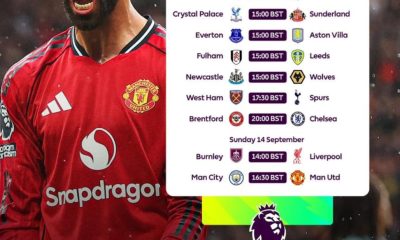

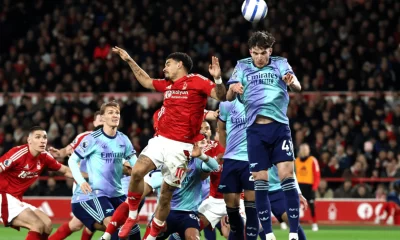



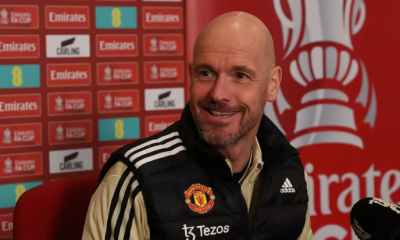

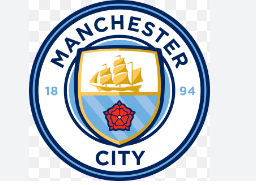

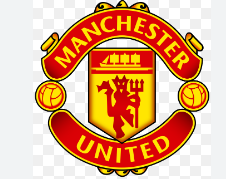


 Health5 days ago
Health5 days ago
 Entertainment1 week ago
Entertainment1 week ago
 Crime6 days ago
Crime6 days ago
 Education1 week ago
Education1 week ago
 Health1 week ago
Health1 week ago
 Comments and Issues7 days ago
Comments and Issues7 days ago
 Football7 days ago
Football7 days ago
 Latest6 days ago
Latest6 days ago
